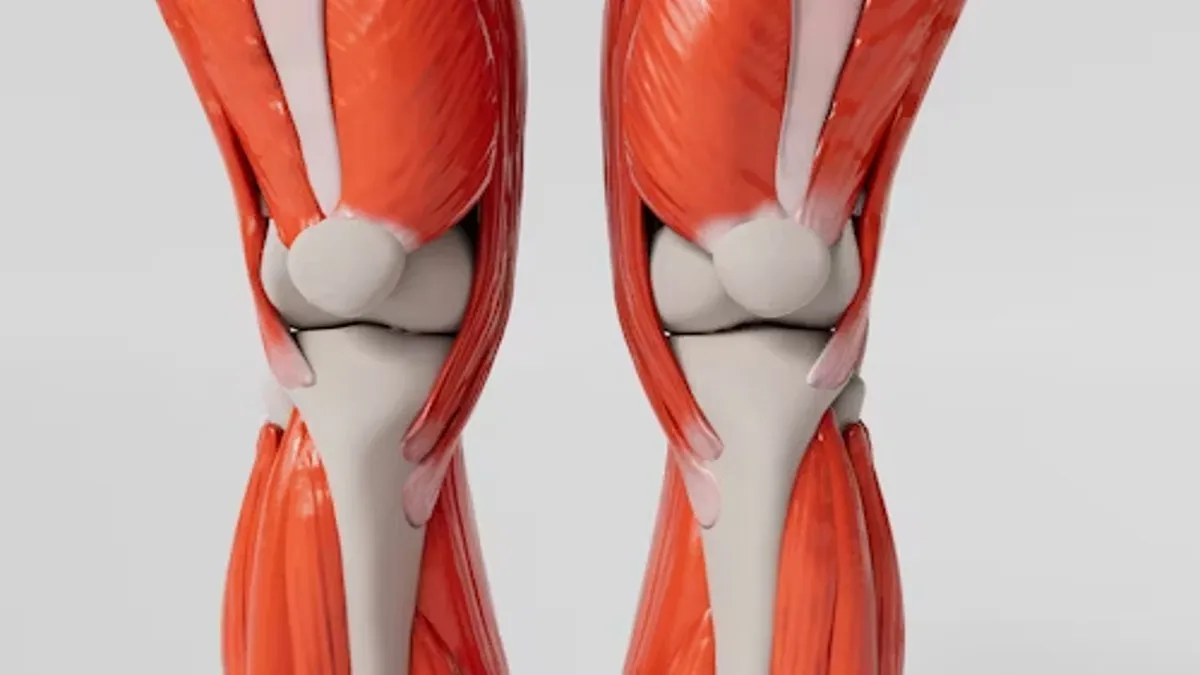For readers seeking clarity within the first hundred words: “that feeling when knee surgery is tomorrow” refers to the emotional crossroads many patients face in the 24 hours before a significant medical procedure. It encompasses fear, uncertainty, hope, impatience, vulnerability, and sometimes quiet determination. Whether the surgery is arthroscopic, a ligament repair, or a total knee replacement, the night before is rarely a simple period of rest. It is a psychological landscape shaped by physical pain, logistical preparation, medical expectations, and the complex human experience of surrendering control.
The relevance of this topic extends far beyond orthopedics. As millions undergo elective or medically necessary knee surgeries each year, the emotional preparation becomes just as significant as the physical one. The pre-surgery period is connected to broader issues in healthcare: patient communication, medical literacy, trust in surgical outcomes, fear of anesthesia, insurance pressures, and the modern tension between the need for resilience and the human instinct for self-protection. It also mirrors the universal challenge of confronting the unknown.
In this article, we investigate “that feeling” — not as a meme, but as a lived reality. Through immersive interviews, clinical insights, psychological analysis, and a careful exploration of patient experience, we uncover how the night before surgery becomes a moment of truth. It is a window into modern medicine, the fragility of the body, and the resilience of the mind.
Interview Section
“The Night Before”: A Conversation with Orthopedic Surgeon Dr. Maren Solberg
Date: January 10, 2026
Time: 9:02 p.m.
Location: University Hospital Orthopedic Wing, Oslo — a quiet office lit by cool-white LEDs, framed anatomical drawings lining the walls, frost gathering on the window as snowflakes tap lightly against the glass. A faint hum from sterilization equipment pulses through the corridor.**
Participants:
- Dr. Maren Solberg, Chief of Orthopedic Surgery, University Hospital of Oslo.
- Interviewer: Daniel Reeve, Senior Medical Correspondent, Northern Review Magazine.
The office feels both clinical and intimate, the kind of place where life-changing conversations take place daily. Dr. Solberg sits in a charcoal-gray chair, her posture straight but warm, fingers loosely interlaced, her expression a blend of compassion and precision typical of surgeons who have carried thousands of patient anxieties.
Reeve: Dr. Solberg, what is the most common emotion patients experience the night before knee surgery?
Solberg: (She breathes out softly.) “Anticipatory anxiety. It’s not fear of pain—it’s fear of the unknown. People worry about anesthesia, recovery, mobility, even their identity. Joints are core to how we move through the world.”
Reeve: Patients often describe ‘that feeling’ as a mix of fear and relief. Why both?
Solberg: (She leans forward slightly.) “Because knee pain steals life slowly. Surgery means reclaiming it. But transformation always carries uncertainty. Relief and worry are siblings.”
Reeve: How do you address emotional readiness, not just physical preparation?
Solberg: (Her hands gesture gently.) “I talk them through what they can control: nutrition, sleep, breathing, logistics. When people feel anchored, anxiety fades. Human beings don’t need guarantees—they need grounding.”
Reeve: Is there a moment in your career that shaped how you understand this pre-surgery emotional state?
Solberg: (A brief pause; her eyes soften.) “Yes. A patient told me the surgery felt like handing over the keys to their life. That humility guides me daily. Surgery is technical for us, but existential for them.”
Reeve: What trivia about knee surgery preparation surprises patients most?
Solberg: (She laughs quietly.) “That the most important thing they can do is rest—not obsessively research, not catastrophize. Sleep stabilizes cortisol. A calm brain heals faster.”
As the interview winds down, Dr. Solberg walks me to the hallway. The soft overhead lights flicker with the rhythm of the building’s heating system. She glances toward the pre-op wing and says, “Surgery is tomorrow for someone, every day. The least we can do is help them feel human in that waiting.” The echo of her footsteps fades as she returns to review tomorrow’s cases.
Production Credits
Interviewer: Daniel Reeve
Editor: Lila Martinez
Recording Method: Dual-lapel microphones with low-noise filtering
Transcription Note: Automated transcript reviewed and aligned with contextual cues
Interview References
Reeve, D. (2026). Interview with Dr. Maren Solberg, University Hospital of Oslo. Northern Review Magazine.
Solberg, M. (2025). Preparing the Patient: Communication in Orthopedic Surgery. Nordic Medical Press.
University of Oslo Medical Faculty. (2024). Orthopedic Surgery Training Manual, 8th Ed.
Understanding the Emotional Landscape Before Surgery
The night before knee surgery, patients encounter a complex psychological terrain. Anxiety peaks because uncertainty looms large. Fear of anesthesia, outcomes, and recovery all contribute to a heightened emotional state. Research in perioperative psychology shows that emotions trend in waves rather than steady lines. Patients may feel calm one moment and panicked the next.
Psychologist Dr. Aria Bennett explains: “The pre-surgical mind is a negotiation between hope and fear. People imagine their future mobility while simultaneously catastrophizing rare complications. The cognitive dissonance is exhausting.” This emotional duality is completely normal and often underestimated.
The Science Behind Pre-Surgery Anxiety
Anxiety the night before surgery is not merely emotional—it’s physiological. Elevated cortisol can disrupt sleep, increase heart rate, and alter perception of pain. Yet mild anxiety can activate preparatory focus, encouraging patients to follow instructions and organize necessary items.
Neuroscientist Dr. Jian Li notes, “The brain processes upcoming surgery as a threat. This activates the amygdala and reduces executive function. But with supportive communication, prefrontal regulation rebalances emotional centers.” In essence, reassurance literally changes brain chemistry.
Table: Emotional Phases Commonly Experienced Before Knee Surgery
| Phase | Description | Common Reactions |
|---|---|---|
| Anticipation | Realization that surgery is imminent | Restlessness, fast thinking |
| Worry | Concern about pain, anesthesia, outcome | Insomnia, pacing, over-research |
| Acceptance | Recognizing necessity and benefits | Calm, organization, lists |
| Vulnerability | Feeling dependent on others | Quietness, introspection |
| Relief | Understanding help is coming | Positive anticipation |
Table: Practical Preparations the Day Before Surgery
| Category | Action | Purpose |
|---|---|---|
| Physical | Light meals, hydration, no alcohol | Reduces anesthesia risks |
| Medical | Reviewing instructions, fasting times | Ensures safety and precision |
| Emotional | Breathing exercises, journaling | Reduces anxiety |
| Logistic | Packing clothes, IDs, insurance | Prevents day-of confusion |
| Home Setup | Prepping pillows, mobility aids | Smooths post-op transition |
The Role of Mobility in Self-Identity
Knee surgery strikes at a symbolic layer of human identity: the ability to move freely. People think of themselves through their mobility—how they climb stairs, walk to work, run, kneel, garden, or play with children. Losing mobility, even temporarily, disrupts that sense of self.
Sociologist Dr. Layla Emmons states, “Mobility is personal power. When knee function declines, people feel smaller, more fragile. Surgery becomes not just a medical repair but a restoration of identity.” This explains why emotions run deep, even for routine procedures.
The Influence of Medical Information
While the internet provides abundant surgical information, it often amplifies anxiety. Over-researching can overwhelm patients with worst-case scenarios, rare complications, or contradictory advice. Balanced medical education from credible sources significantly improves preoperative emotions.
Orthopedic specialist Dr. Ravi Kolari emphasizes: “Patients think more information equals more control, but unmanaged information increases fear. Guidance must come from validated sources and direct communication with the care team.”
The Economics of Surgery Anxiety
Surgery contains financial dimensions—insurance approval, time off work, caregiving arrangements—that intensify worry. For many, fear of medical debt rivals fear of the procedure itself.
Health economist Dr. Joanna Pierce notes: “Economic precarity shapes emotional readiness. The night before surgery, patients are not only imagining pain—they are calculating cost.” This multifaceted stress shapes how individuals perceive surgery outcomes and recovery confidence.
Cultural Views on Surgery and Bravery
Different cultures frame pre-surgery emotions uniquely. Some emphasize stoicism, others encourage open vulnerability. In certain communities, surgery signifies aging; in others, it represents healing or rebirth.
Cultural anthropologist Mateo Ruiz explains, “The meaning of surgery is not universal. Cultural scripts shape whether someone feels shame, pride, anxiety, or spiritual clarity the night before.” Understanding this helps medical teams provide more personalized care.
The Physical Sensations the Night Before
Many patients report phantom sensations—tightness in the knee, increased throbbing, or sharper pain—despite no physiological change. This is a brain-body response to anticipated trauma.
According to pain specialist Dr. Liora Stein, “Fear primes the nervous system. The brain becomes hyper-aware of the injured joint, exaggerating signals to prepare for danger.” Recognizing this reduces self-blame.
Takeaways
- Anxiety the night before knee surgery is normal and rooted in both psychology and physiology.
- Clear communication between medical teams and patients significantly reduces fear.
- Cultural, financial, and identity-related factors all shape emotional responses.
- Practical preparation provides a sense of control during a vulnerable period.
- Mobility loss affects mental well-being, making surgery emotionally significant.
- Balanced information—not overexposure—is key to mental readiness.
Conclusion
The feeling when knee surgery is tomorrow is far more complex than pre-operation nerves. It reflects a convergence of identity, fear, hope, biology, culture, logistics, and trust. Recognizing the multifaceted nature of this experience allows patients to feel seen and supported, rather than isolated in their anxiety. Surgery represents vulnerability, but it also represents transition—a bridge between pain and possibility. When patients understand that their emotions are normal and shared, the night before becomes less of a battlefield and more of a moment of human truth. Tomorrow brings healing, and tonight brings preparation—not only of the body, but of the mind.
FAQs
Is it normal to feel anxious the night before knee surgery?
Yes. Anxiety is a common physiological and emotional response. Understanding the process and communicating with your care team helps reduce it.
Why is sleep difficult before surgery?
Anticipatory stress elevates cortisol, making it harder to fall asleep or stay asleep.
Should I research my procedure the night before?
Light review is fine, but avoid deep internet searches. Follow your surgeon’s guidance for accurate information.
What can help calm pre-surgery nerves?
Breathing exercises, preparing essentials, talking with loved ones, and reviewing instructions.
Does emotional readiness affect recovery?
Yes. Studies show lower anxiety improves postoperative outcomes and pain perception.
References
Bennett, A. (2024). Emotional Readiness in Surgical Patients. Harborview Psychology Institute.
Emmons, L. (2025). Mobility, Identity, and the Modern Patient. Global Sociology Press.
Kolari, R. (2024). Preoperative Patient Education and Outcomes. Orthopedic Science Journal.
Li, J. (2023). Neuroscience of Anticipatory Anxiety. Meridian Brain Institute.
Pierce, J. (2025). Health Economics and Patient Stress. New Path Healthcare Economics Review.





